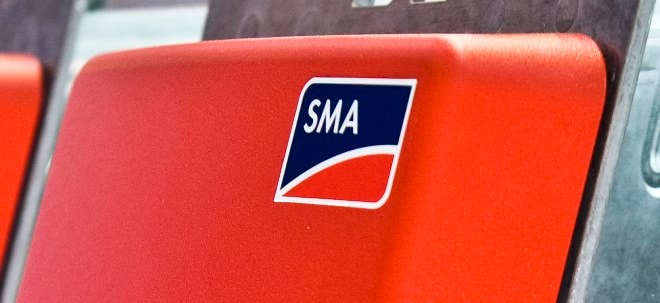U.S. FDA approves third indication of darolutamide for patients with advanced prostate cancer
Werte in diesem Artikel
ORION CORPORATION
PRESS RELEASE
3 JUNE 2025 at 23.30 EEST
U.S. FDA approves third indication of darolutamide for patients with advanced prostate cancer
- Darolutamide is the first and only in the U.S. and FDA-approved androgen receptor inhibitor (ARi) for the treatment of patients with hormone-sensitive prostate cancer (mHSPC), in combination with androgen deprivation therapy (ADT), with or without chemotherapy.
- This third approval is based on positive results from the pivotal Phase III ARANOTE trial and broadens the indication profile of darolutamide in mHSPC, enabling its use in combination with ADT, with or without chemotherapy (docetaxel).
- Darolutamide plus ADT reinforces the established safety and tolerability profile of darolutamide for prostate cancer patients across all approved indications.
Orion’s collaboration partner Bayer announced today that the U.S. Food and Drug Administration (FDA) has approved the oral androgen receptor inhibitor (ARi) darolutamide in combination with androgen deprivation therapy (ADT) for use in patients with metastatic castration-sensitive prostate cancer (mCSPC), which is also known as metastatic hormone-sensitive prostate cancer (mHSPC). The approval is based on positive results from the pivotal Phase III ARANOTE trial, which showed that darolutamide plus ADT significantly reduced the risk of radiological progression or death by 46% compared to placebo plus ADT (HR 0.54; 95% CI 0.41–0.71; P<0.0001) in patients with mHSPC.
With this approval, darolutamide plus ADT is indicated in the U.S. for the treatment of adult patients with mHSPC either with or without docetaxel. In addition, darolutamide is approved for the treatment of adult patients with non-metastatic castration-resistant prostate cancer (nmCRPC) who are at high risk of developing metastatic disease.
Prostate cancer is the second most common cancer in men and the fifth most common cause of cancer death in men worldwide.1 In 2022, an estimated 1.5 million men were diagnosed with prostate cancer, and about 397,000 died from the disease worldwide.1 Prostate cancer diagnoses are projected to increase to 2.9 million by 2040.2
Darolutamide, under the brand name Nubeqa®, is already approved in mHSPC in combination with ADT and docetaxel in over 85 markets around the world. It’s also approved in combination with ADT for the treatment of patients with non-metastatic castration-resistant prostate cancer (nmCRPC) who are at high risk of developing metastatic disease in more than 85 countries around the world. An approval process in the EU for the treatment of mHSPC in combination with ADT (without docetaxel) is already underway by Bayer.
Nubeqa achieved blockbuster status in September 2024, with annual sales reported by Bayer reaching EUR 1.52 billion for the full year of 2024.
Darolutamide is developed jointly by Orion and Bayer.
About the ARANOTE trial
The ARANOTE trial is a randomized, double-blind, placebo-controlled Phase III study designed to assess the efficacy and safety of darolutamide plus ADT in patients with mHSPC. 669 patients were randomized 2:1 to receive 600 mg of darolutamide twice daily or matching placebo in addition to ADT.
The primary endpoint of this study is rPFS, measured as time from randomization to date of first documented radiological progressive disease or death due to any cause, whichever occurs first. Secondary endpoints include overall survival (time to death from any cause), time to first castration resistant event, time to initiation of subsequent anti-cancer therapy, time to prostate-specific antigen (PSA) progression, PSA undetectable rates, time to pain progression, and safety assessments.
Results from the Phase III ARANOTE trial presented at ESMO 2024 and published in The Journal of Clinical Oncology showed that darolutamide plus ADT significantly reduced the risk of radiological progression or death by 46% compared to placebo plus ADT (HR 0.54; 95% CI 0.41–0.71; P<0.0001), in patients with mHSPC. Consistent benefits in radiological progression-free survival (rPFS) were observed across prespecified subgroups, including patients with high-volume (HR 0.60, 95% CI: 0.44-0.80) and low-volume (HR 0.30, 95% CI: 0.15-0.60) mHSPC. The incidence of adverse events in the treatment group with darolutamide plus ADT in the ARANOTE study was comparable to placebo plus ADT. Darolutamide plus ADT was generally well tolerated and showed lower discontinuation rates due to adverse events compared to placebo plus ADT.
About darolutamide
Darolutamide is an oral ARi with a unique chemical structure that binds with high affinity to the androgen receptor and exhibits a strong antagonistic effect against the androgen receptor inhibiting the receptor function and the growth of prostate cancer cells. Additionally, preclinical models and neuroimaging data in healthy humans support darolutamide's low potential for blood-brain barrier penetration.
Darolutamide (plus ADT or plus ADT and docetaxel) demonstrated a side effect profile in both registrational studies in mHSPC where the incidences of adverse events were roughly similar to the respective comparator arm. Darolutamide is a treatment option for doctors and patients, considering its tolerability and low risk of drug interaction.
A robust clinical development program is underway investigating darolutamide across various stages of prostate cancer. The program includes the Phase III ARASTEP trial evaluating darolutamide plus ADT compared to ADT alone in hormone-sensitive high-risk biochemical recurrence (BCR) prostate cancer, who have no evidence of metastatic disease by conventional imaging and a positive PSMA PET/CT at baseline. Furthermore, darolutamide is also being investigated by Bayer in the collaborative Phase III DASL-HiCaP (ANZUP1801) trial led by the Australian and New Zealand Urogenital and Prostate Cancer Trials Group (ANZUP). The study evaluates darolutamide as an adjuvant treatment for localized prostate cancer with very high risk of recurrence.
About metastatic hormone-sensitive prostate cancer
At the time of diagnosis, most men have localized prostate cancer, meaning their cancer is confined to the prostate gland and can be treated with curative surgery or radiotherapy. mHSPC is a stage in the disease where the cancer has spread outside of the prostate to other parts of the body. Up to 10% of men will present with mHSPC when first diagnosed.3,4,5 For patients with mHSPC, ADT is the cornerstone of treatment, in combination with chemotherapy docetaxel and/or an androgen receptor inhibitor (ARi).
Despite treatment, most men with mHSPC will eventually progress to castration-resistant prostate cancer (CRPC), a condition with limited survival.
Contact person:
Tuukka Hirvonen, Investor Relations
tel. +358 10 426 2721
References
- Bray F et al. Global cancer statistics 2022: GLOBOCAN estimates of incidence and mortality worldwide for 36 cancers in 185 countries. https://acsjournals.onlinelibrary.wiley.com/doi/10.3322/caac.21834 Accessed: September 2024.
- James ND et al. Lancet 2024; 403: 1683–722.
- Piombino C et al. Cancers (Basel). 2023 Oct 11;15(20):4945.
- Helgstrand JT et al. Cancer. 2018;124(14):2931-2938.
- Buzzoni C et al. Eur. Urol. 2015;68:885–890.
Publisher:
Orion Corporation
Communications
Orionintie 1A, FI-02200 Espoo, Finland
www.orionpharma.com
Orion is a globally operating Nordic pharmaceutical company – a builder of well-being for over a hundred years. We develop, manufacture and market human and veterinary pharmaceuticals and active pharmaceutical ingredients. Orion has an extensive portfolio of proprietary and generic medicines and consumer health products. The core therapy areas of our pharmaceutical R&D are oncology and pain. Proprietary products developed by Orion are used to treat cancer, neurological diseases and respiratory diseases, among others. In 2024 Orion's net sales amounted to EUR 1,542 million and the company employed about 3,700 professionals worldwide, dedicated to building well-being. Orion's A and B shares are listed on Nasdaq Helsinki.

Ausgewählte Hebelprodukte auf Orion B
Mit Knock-outs können spekulative Anleger überproportional an Kursbewegungen partizipieren. Wählen Sie einfach den gewünschten Hebel und wir zeigen Ihnen passende Open-End Produkte auf Orion B
Der Hebel muss zwischen 2 und 20 liegen
| Name | Hebel | KO | Emittent |
|---|
| Name | Hebel | KO | Emittent |
|---|
Nachrichten zu Orion Corporation (New) (B)
Analysen zu Orion Corporation (New) (B)
Keine Analysen gefunden.

